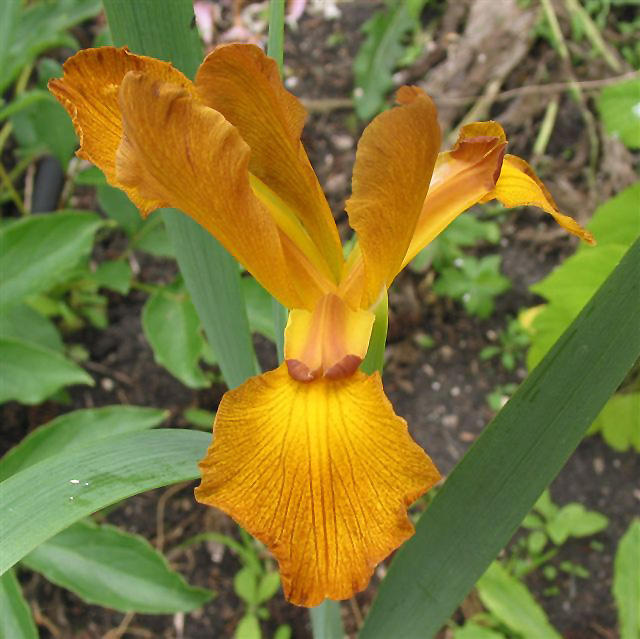Plant Finder
Centering Point Spuria Iris*
Iris spuria 'Centering Point'
* This is a "special order" plant - contact store for details
Plant Height: 3 feet
Flower Height: 4 feet
Spacing: 14 inches
Sunlight:
![]()
![]()
Hardiness Zone: 2b
Description:
Muted gold-orange flowers marked with purple; blooms emerge from lush, sword-like foliage; hardy and easy to grow; cut back in the fall to reduce pests
Ornamental Features
Centering Point Spuria Iris has masses of beautiful gold flag-like flowers with burgundy overtones and purple veins at the ends of the stems in mid spring, which are most effective when planted in groupings. The flowers are excellent for cutting. Its sword-like leaves remain green in color throughout the season.
Landscape Attributes
Centering Point Spuria Iris is an herbaceous perennial with tall flower stalks held atop a low mound of foliage. Its medium texture blends into the garden, but can always be balanced by a couple of finer or coarser plants for an effective composition.
This plant will require occasional maintenance and upkeep, and should be cut back in late fall in preparation for winter. Deer don't particularly care for this plant and will usually leave it alone in favor of tastier treats. It has no significant negative characteristics.
Centering Point Spuria Iris is recommended for the following landscape applications;
- Mass Planting
- General Garden Use
Planting & Growing
Centering Point Spuria Iris will grow to be about 3 feet tall at maturity extending to 4 feet tall with the flowers, with a spread of 18 inches. When grown in masses or used as a bedding plant, individual plants should be spaced approximately 14 inches apart. The flower stalks can be weak and so it may require staking in exposed sites or excessively rich soils. It grows at a medium rate, and under ideal conditions can be expected to live for approximately 10 years. As an herbaceous perennial, this plant will usually die back to the crown each winter, and will regrow from the base each spring. Be careful not to disturb the crown in late winter when it may not be readily seen!
This plant does best in full sun to partial shade. It prefers to grow in average to moist conditions, and shouldn't be allowed to dry out. It is not particular as to soil type or pH. It is somewhat tolerant of urban pollution. This is a selected variety of a species not originally from North America. It can be propagated by division; however, as a cultivated variety, be aware that it may be subject to certain restrictions or prohibitions on propagation.
* This is a "special order" plant - contact store for details
